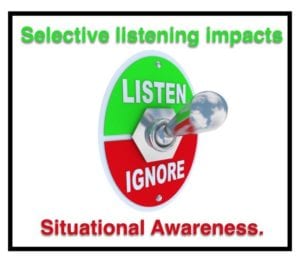

The majority of children with Selective Mutism have a genetic predisposition to anxiety. Why does a child develop Selective Mutism? When compared to the typically shy and timid child, most children with Selective Mutism are at the extreme end of the spectrum for timidity and shyness. Less severely affected children may look relaxed and carefree, and are able to socialize with one or a few children but are unable to speak and effectively communicate to teachers or most/all peers. They may freeze, be expressionless, unemotional and may be socially isolated. Some children may stand motionless with fear as they are confronted with specific social settings. Some may be completely mute and unable to speak or communicate to anyone in a social setting, others may be able to speak to a select few or perhaps whisper. Not all children manifest their anxiety in the same way. Many children with Selective Mutism have great difficulty responding or initiating communication in a nonverbal manner therefore, social engagement may be compromised in many children when confronted by others or in an overwhelming setting where they sense a feeling of expectation. Children and adolescents with Selective Mutism have an actual FEAR of speaking and of social interactions where there is an expectation to speak and communicate. This disorder is quite debilitating and painful to the child.

More than 90% of children with Selective Mutism also have social phobia or social anxiety. These children are able to speak and communicate in settings where they are comfortable, secure, and relaxed. PH: (215) 887-5748 | E: Mutism is a complex childhood anxiety disorder characterized by a child’s inability to speak and communicate effectively in select social settings, such as school. A good selective listener would filter all the verbal communication barriers, which includes redundant words, generalized statements, negative statements, verbal fillers, and listen to the content, emotion and prosody behind the communication.WHAT IS SELECTIVE MUTISM? Selective Mutism – A Comprehensive Overview For instance, when a manager is blasting, the subordinate selectively listen the issue rather than focusing on the harsh words. However, selective listening, sometimes, is also effective. This could be due to various reasons such as noisy place, to many interruptions like phone calls, or low volume by the speaker, or disinterest from the listener. Only a part of information is absorbed during selective listening.

after you say say, "NO" politely to someone.

By listening to only motives and words and ignoring the emotions will help you to resolve conflicts in a constructive manner.Įxample Two: When a person is extremely happy, listen to motives, emotions and words and become an active listener by focusing on all these three listening elements. Selective Listening Examples Example One: When a person is extremely angry, Listen to words and motives rather than getting carried away witht eh emotions that the person exhibit at that moment because in many instances the emotions portrayed by a person during anger is subconscious and he/she may not have control over it as it is a natural human behavior.


 0 kommentar(er)
0 kommentar(er)
